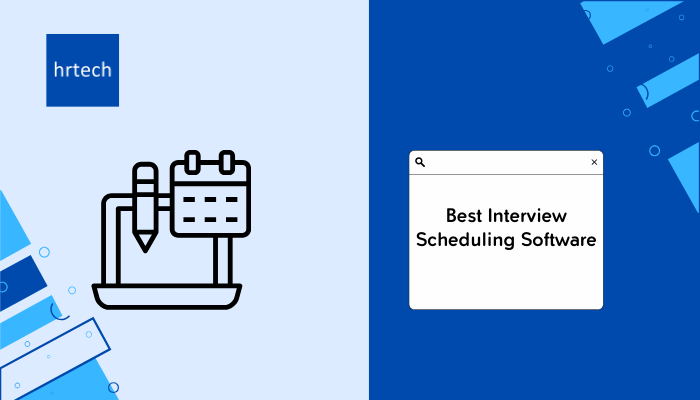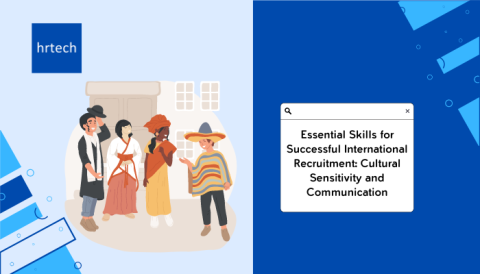Hiring the right talent is like finding a needle in a haystack challenging but critical. In today’s competitive job market, where an interview candidate might have multiple offers on the table, a seamless interview process can make all the difference. According to a LinkedIn report, 83% of candidates say a negative interview experience can change their perception of a company, while 87% say a positive one can make them reconsider an offer.
This is where interview scheduling software steps in as the unsung hero of recruitment. Forget endless email chains and miscommunications—these tools automate the scheduling process, reduce human error, and offer a better experience for both recruiters and candidates. They integrate with calendars, account for time zones, and even allow candidates to self-schedule interviews, making the process smoother and faster.
With 60% of recruiters admitting they’ve lost top candidates due to scheduling delays, the need for efficient tools has never been greater. In this article, we’ll explore the benefits of interview scheduling software, its standout features, tips on choosing the best tool, and a roundup of the top 10 platforms to transform how you manage your next interview candidate interaction.
Introduction to Interview Scheduling Software
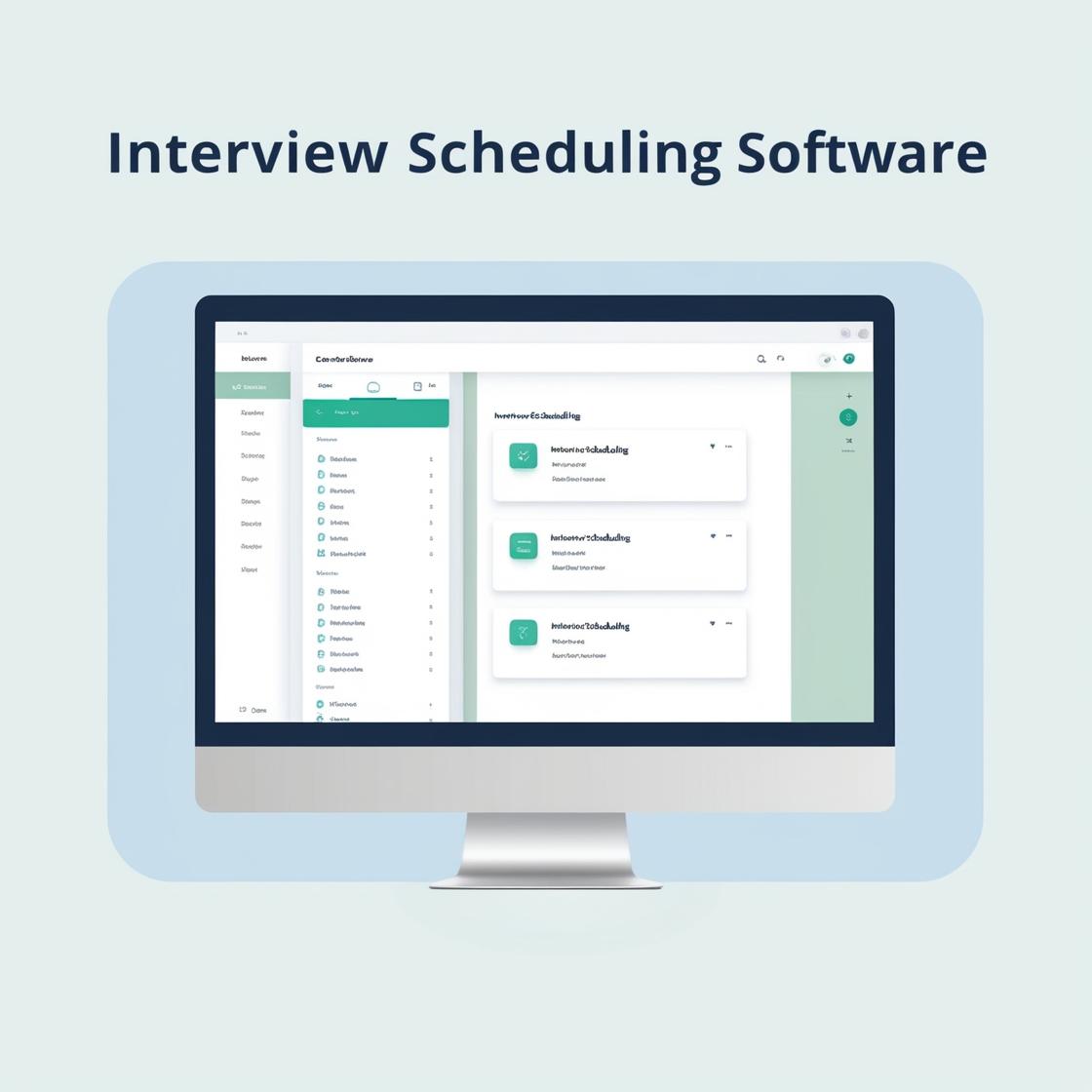
Managing interviews can often feel like a juggling act, especially when dealing with multiple candidates, varied time zones, and tight hiring deadlines. Enter interview scheduling software, a digital solution that takes the chaos out of coordination. These tools automate and streamline the process of arranging interviews, allowing recruiters and hiring managers to focus on evaluating talent rather than scheduling logistics.
According to PubMed Central the treatment group finalized interviews with an average of 2.0 fewer phone calls than the control group, requiring only 11.6 calls compared to 13.5 calls. Traditional methods like emails and phone calls can be time-consuming and prone to miscommunication. A 2023 survey by HR.com revealed that 67% of hiring managers experienced scheduling conflicts at least once a week, impacting their ability to secure top talent. Interview scheduling software eliminates this back-and-forth by offering real-time availability syncing, calendar integration, and even candidate self-scheduling.
The benefits extend to both recruiters and candidates. For recruiters, it provides transparency, efficiency, and the ability to scale the hiring process, especially in high-volume recruiting scenarios. For the interview candidate, it creates a professional and stress-free experience, signaling that the company values their time. To enhance your hiring process further, explore the Best Applicant Tracking Systems for Every Budget that integrate seamlessly with interview scheduling software.
This ensures not only a smoother process but also fewer no-shows—data shows that companies using scheduling software report a 25% reduction in missed interviews.
Importance in the Hiring Process
An interview candidate may be juggling multiple offers, speed and efficiency in the hiring process are crucial. A poorly managed interview schedule can frustrate candidates, delay decisions, and ultimately result in losing top talent to competitors.
According to Glassdoor, the average hiring process in the U.S. takes about 23.8 days, but companies that optimize their scheduling see a reduction of up to 30% in their time-to-hire metrics. To further improve your hiring process, explore the Best Candidate Assessment Tools for Effective Recruitment and see how they complement interview scheduling software to streamline hiring.
Key Reasons Why Interview Scheduling Is Crucial:
- Candidate Experience: A well-coordinated interview process leaves a lasting positive impression on the candidate.
- Reduced Time-to-Hire: Automating scheduling minimizes delays and accelerates the recruitment timeline.
- Improved Team Efficiency: HR teams save countless hours by avoiding back-and-forth communications.
- Minimized Scheduling Conflicts: Automated tools reduce the risk of overlapping or double-booking interview slots.
- Enhanced Decision-Making: With a smooth process in place, recruiters can focus more on selecting the best fit for the role rather than logistical hassles.
Efficient scheduling doesn’t just impact the recruitment process—it directly influences the quality of talent a company can attract and retain. To explore the best tools that can streamline your interview scheduling and enhance your recruitment outcomes, visit the hrtech marketplaces for solutions that fit your organization’s needs.
Key Benefits of Using Scheduling Software
Investing in interview scheduling software is no longer a luxury but a necessity for organizations aiming to enhance their hiring efficiency. By automating repetitive tasks and streamlining the process, these tools offer significant advantages for both recruiters and candidates. For any interview candidate the scheduling experience often forms their first impression of the company, making it a crucial touchpoint in the hiring journey. Learn more about Top Recruitment Best Practices with Examplesand how interview scheduling tools play a critical role in creating a seamless recruitment process.
Time Savings
By automating the scheduling process, recruiters can reclaim hours that would otherwise be spent on back-and-forth communication. According to research by SHRM, automation in scheduling can save up to 10 hours per week for HR teams in high-volume recruitment environments.
Enhanced Candidate Experience
Flexibility to select interview slots at their convenience ensures a positive experience for the interview candidate. Transparency in scheduling conveys respect for their time and professionalism on the company’s part.
Reduced Errors
Scheduling conflicts and overlapping appointments become a thing of the past with real-time calendar syncing and conflict detection. Automated reminders further reduce the likelihood of missed interviews, a win-win for recruiters and candidates alike.
Scalability
Whether it’s scheduling a single interview or managing bulk hiring for seasonal roles, the software adapts to the organization’s needs without additional effort. It allows companies to efficiently scale up their hiring efforts without compromising quality.
Improved Communication
Built-in tools such as email notifications, chat features, and updates keep all stakeholders recruiters, interviewers, and candidates on the same page, avoiding last-minute surprises.
Data Insights
Many tools provide analytics on time-to-hire, interview durations, and candidate engagement, helping HR teams refine their strategies for better outcomes.
Incorporating interview scheduling software into your hiring process not only boosts operational efficiency but also positions your organization as a modern and candidate-friendly employer.
Features of Leading Interview Scheduling Software
Efficient interview scheduling software is packed with features designed to streamline hiring, reduce errors, and enhance the overall experience for recruiters and candidates alike. These features not only improve productivity but also ensure that every interview candidate enjoys a smooth and professional interaction with your company. Dive into the Guide to the Candidate Evaluation Process to understand how scheduling software simplifies the steps of evaluating candidates.
Automated Scheduling
Automating the scheduling process allows recruiters to set availability parameters, eliminating the need for endless emails or phone calls. Candidates can instantly see available slots and choose a time that fits their schedule.
This not only accelerates the hiring process but also ensures that recruiters spend less time on logistics and more time on evaluating the best fit for the role. A study by TalentBoard revealed that automated scheduling reduced average scheduling time by 50%, significantly cutting down hiring delays.
Calendar Integration
Seamless integration with platforms like Google Calendar, Microsoft Outlook, and Apple Calendar ensures that all schedules are synchronized in real time. Avoids double bookings or conflicts by instantly blocking unavailable slots for everyone involved.
This feature is particularly helpful in coordinating interviews that involve multiple stakeholders across different departments.
Time Zone Management
For global companies or roles requiring remote candidates, managing time zones manually can lead to costly mistakes. Time zone management features automatically convert availability into the interview candidate’s local time, ensuring clear and punctual coordination. This is crucial for organizations hiring internationally or with distributed teams.
Pro Tip: Using tools with built-in time zone adjustment can increase your global hiring efficiency by 40%.
Candidate Self-Scheduling
By allowing candidates to self-schedule interviews, companies empower them to choose convenient slots, creating a positive impression right from the start. Self-scheduling also reduces the chance of miscommunication and lowers the rate of no-shows by 25%, as candidates take ownership of their interview times. This feature is ideal for high-volume recruitment processes where speed and efficiency are critical.
Communication Tools
Built-in messaging features, such as email templates and chat options, enhance communication between recruiters and candidates. Many tools also integrate with video conferencing platforms like Zoom, Microsoft Teams, and Google Meet, making it easy to set up virtual interviews. Clear and consistent communication fosters trust and keeps candidates informed, ensuring a smooth process.
Example in Action: Companies that use integrated communication tools report a 20% improvement in candidate satisfaction, as noted in a LinkedIn study.
Reminders and Notifications
Customizable reminders keep both recruiters and candidates on track with upcoming interviews. Notifications can be sent via email, SMS, or app alerts, ensuring that no one forgets their scheduled commitments. This feature is particularly useful for busy recruiters managing multiple interviews daily, as well as for candidates with packed calendars.
Customizable Workflows
Recruitment processes can vary significantly from one organization to another. Customizable workflows let companies design their scheduling process to fit their unique requirements. For example, different interview stages (e.g., phone screens, panel interviews, or final rounds) can be set up with distinct workflows, ensuring efficiency and consistency throughout the hiring process.
This flexibility ensures that the software adapts to your needs, not the other way around. Companies that customize workflows see a 30% reduction in hiring bottlenecks, making it easier to fill roles faster. With these features, interview scheduling software transforms what was once a tedious and error-prone task into a streamlined, efficient, and candidate-friendly process.
Organizations that leverage these tools not only save time but also enhance their reputation as professional and modern employers, leaving a lasting impression on every interview candidate.
How Interview Scheduling Software Benefits Candidates
A company’s ability to deliver a seamless scheduling experience can significantly influence an interview candidate’s perception of the organization. Interview scheduling software is designed to not only simplify the hiring process for recruiters but also provide tangible benefits for candidates, ensuring their journey is smooth, efficient, and stress-free. Here’s how it makes a difference:
- Flexibility and Candidate Empowerment: Allows candidates to select interview slots that fit their schedules, reducing stress and demonstrating respect for their time. Features like time zone adjustments make it ideal for global or remote positions, ensuring seamless scheduling.
- Improved Communication and Transparency: Automated updates and notifications keep candidates informed at every step, while built-in communication tools and virtual interview integration foster trust and streamline interactions.
- Elimination of Scheduling Conflicts: Automated tools minimize risks of double bookings or last-minute changes, ensuring a smooth and professional experience for candidates.
- Enhanced Candidate Experience: Simplifies the scheduling process, boosting candidate confidence and leaving a lasting positive impression of the organization.
- Increased Engagement and Efficiency: Clear scheduling and communication processes reduce interview drop-off rates by 25%, ensuring candidates remain committed and engaged throughout the hiring journey.
Choosing the Right Interview Scheduling Software
Selecting the best interview scheduling software for your organization is not a one-size-fits-all decision. It requires a clear understanding of your company’s hiring needs, the volume of candidates, and how the software will fit into your existing recruitment workflow. The right tool can save time, reduce errors, and create a better experience for every interview candidate, while a poor choice may lead to inefficiencies and frustration.
Understanding Organizational Needs
Assess whether your company needs advanced features like time zone management, bulk scheduling, or self-scheduling options. Determine if the software will support high-volume recruitment or cater to specialized hiring processes.
Scalability and Ease of Use
Ensure the tool can grow with your organization, accommodating future hiring demands. Look for a user-friendly interface to ensure smooth adoption by recruiters and candidates.
Integration with Existing Systems
Choose software that integrates seamlessly with your Applicant Tracking System (ATS), calendars, and communication tools. This ensures a streamlined recruitment workflow without duplicating effort.
Budget Considerations:
Compare costs with the value offered by the software’s features. Opt for a tool that balances affordability with functionality.
User Reviews and Feedback:
Check testimonials and reviews to gauge real-world performance and reliability. Pay attention to how well the software addresses common issues like scheduling conflicts and no-shows.
By carefully evaluating these factors, organizations can select an interview scheduling software that aligns with their goals, improves recruiter efficiency, and ensures a positive experience for every interview candidate.
Compare the Best Interview Scheduling Tools
While some tools cater to small businesses with affordable pricing and simplicity, others are designed for large-scale operations with advanced analytics and bulk scheduling capabilities. Comparing tools on factors such as ease of use, compatibility, and user reviews ensures you select a solution that enhances the recruitment process for both your team and every interview candidate.
| Software Name | Popularity Score | Best For | Key Differentiator |
| Paradox | 9.5/10 | Large teams | Conversational AI assistant “Olivia” for real-time scheduling. |
| BambooHR | 9.2/10 | All-in-one HR needs | Seamless integration with ATS and HR tools. |
| Workable | 9.0/10 | Comprehensive recruitment | Advanced scheduling with ATS functionality. |
| Hulkhire | 8.8/10 | Small to mid-sized businesses | Intuitive interface with self-scheduling. |
| Flocareer | 8.7/10 | Collaborative hiring | Skill-based interviewer matching. |
| HireVue | 9.4/10 | Large-scale recruitment | Combines video interviews with scheduling tools. |
| Zoho Recruit | 8.9/10 | Small businesses | Affordable pricing with built-in ATS. |
| MyInterview Scheduler | 8.5/10 | Budget-conscious SMBs | Cost-effective video interview scheduling. |
| G2Track | 9.1/10 | Large teams | Bulk scheduling with analytics capabilities. |
| Gohire | 8.6/10 | Startups | User-friendly interface for small businesses. |
Top 10 Interview Scheduling Software
Finding the right interview scheduling software can transform the recruitment process, ensuring a seamless experience for both recruiters and every interview candidate. With features like automated scheduling, candidate self-scheduling, time zone management, and integration with ATS and calendars, these tools streamline interview logistics, save valuable time, and reduce errors.
1. Paradox
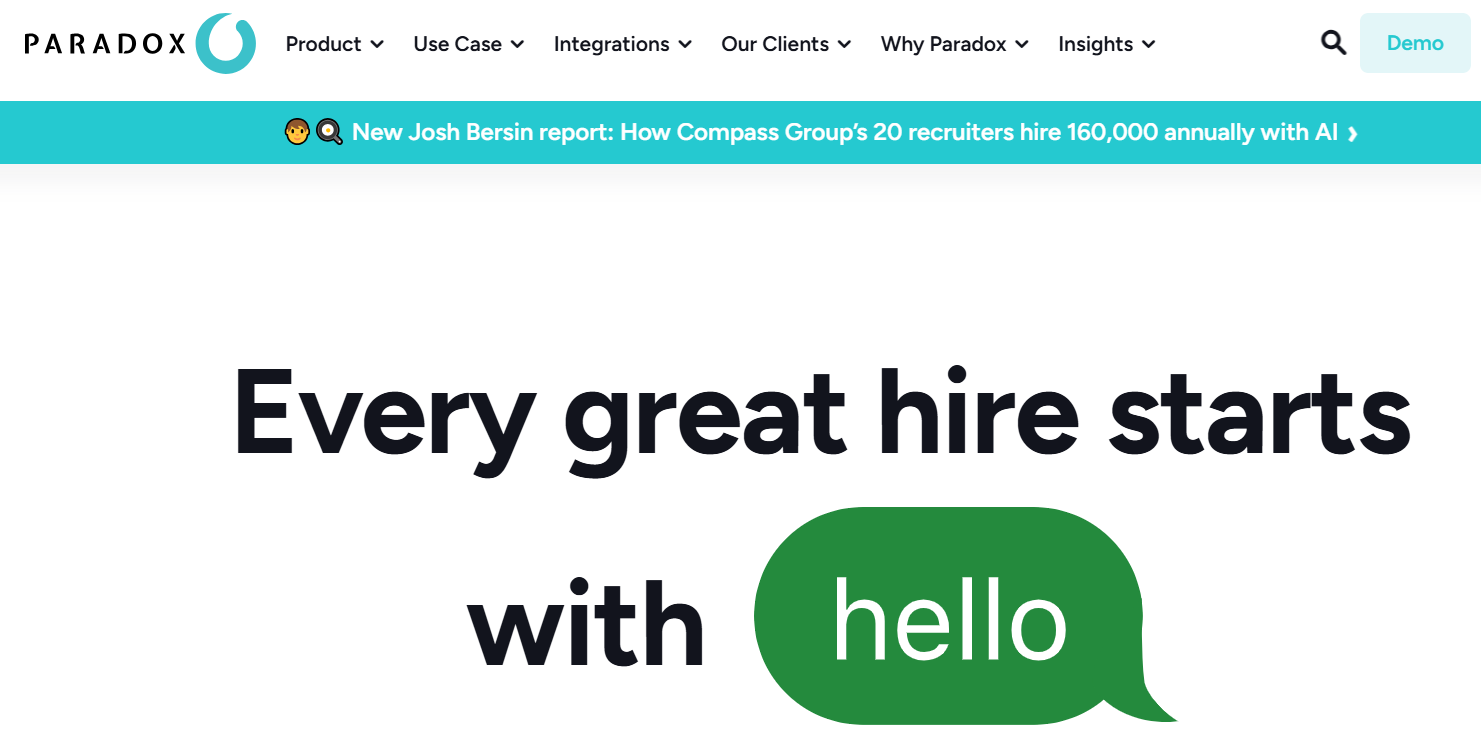
Paradox is a leading AI-driven platform featuring its virtual assistant, Olivia, which automates scheduling and provides personalized candidate engagement. Olivia simplifies the recruitment process by handling scheduling, rescheduling, and reminders with minimal human intervention. It’s an excellent tool for companies managing high-volume hiring or operating in global markets. By integrating conversational AI and advanced automation, Paradox enhances recruiter productivity while ensuring candidates feel valued through responsive interactions.
Key Features:
- Conversational AI assistant available in over 100 languages.
- Instant scheduling and rescheduling via AI.
- Integration with ATS and calendar systems.
- Automated follow-ups to reduce no-shows.
- Real-time feedback collection from candidates.
Pros:
1. Significantly reduces administrative workload for recruiters.
2. Provides a highly engaging experience for candidates.
3. Scalable for large organizations with global operations.
4. Offers multilingual support for diverse recruitment needs.
Cons:
1. Designed primarily for enterprise-level companies, making it less suitable for small businesses.
2. Custom pricing may not align with smaller budgets.
3. Initial setup may require significant time and training.
4. Limited offline functionality for recruiters on the go.
2. BambooHR
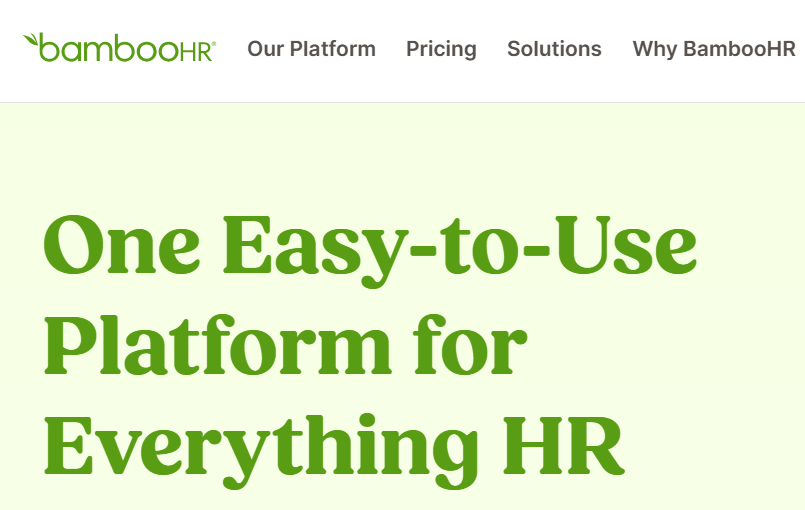
BambooHR is an all-in-one HR software that integrates robust interview scheduling features within its comprehensive platform. Known for its intuitive design and user-friendly interface, it simplifies the hiring process by syncing schedules, sending reminders, and collecting feedback. BambooHR is especially favored by organizations looking for a complete HR management tool with scheduling capabilities, making it a strong choice for medium and large-sized companies.
Key Features:
- Seamless ATS and calendar integration.
- Customizable workflows for tailored recruitment processes.
- Automated email and SMS reminders.
- Team collaboration tools for interviewer feedback.
- Centralized communication with candidates.
Pros:
1. Combines HR management with interview scheduling for seamless operations.
2. Offers excellent customer support for implementation and troubleshooting.
3. Highly scalable for growing organizations.
4. Integrates well with payroll and other HR tools.
Cons:
1. Pricing can be prohibitive for startups and small businesses.
2. Some users report limited flexibility in customizing scheduling workflows.
3. Not ideal for companies looking for standalone scheduling tools.
4. Lacks a dedicated mobile app for scheduling tasks.
3. Workable
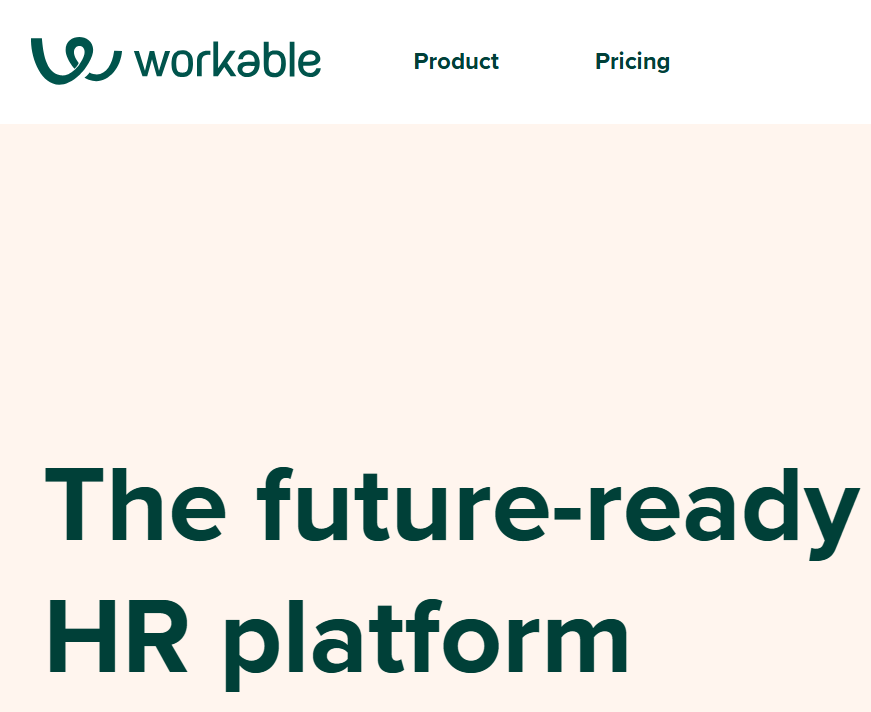
Workable is a comprehensive recruitment platform offering advanced ATS and interview scheduling tools. Its standout features include candidate self-scheduling, global time zone management, and a mobile-friendly interface. Workable is designed for companies that need a powerful, all-in-one recruitment solution, making it a favorite among medium-to-large enterprises with global hiring needs.
Key Features:
- Time zone conversion for international scheduling.
- Mobile compatibility for managing interviews on the go.
- Automated rescheduling for unexpected changes.
- Integration with major video conferencing platforms like Zoom and Teams.
- Bulk scheduling for high-volume recruitment.
Pros:
1. Comprehensive platform with robust ATS functionality.
2. Mobile-friendly, ensuring flexibility for recruiters and candidates.
3. Ideal for remote and global hiring processes.
4. Advanced reporting tools for recruitment analytics.
Cons:
1. Higher pricing may deter smaller businesses.
2. Some features require additional customization.
3. Initial setup and learning curve can be steep.
4. Limited functionality in lower-tier plans.
4. Hulkhire
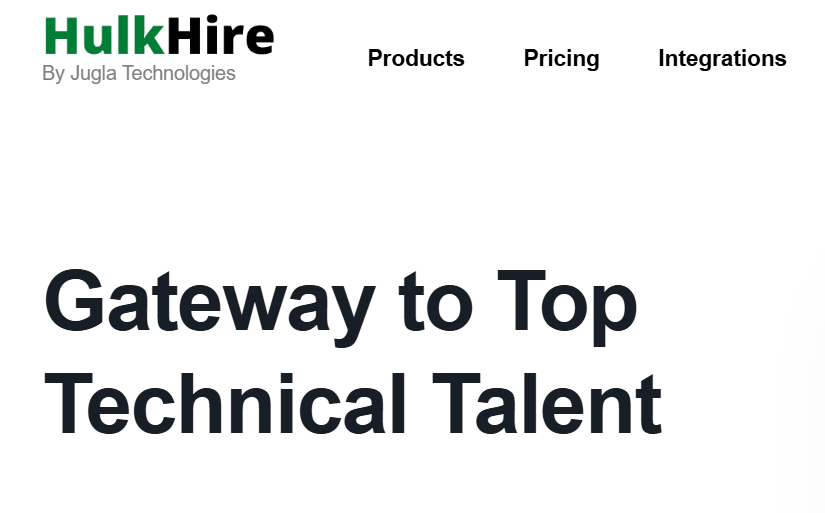
Hulkhire provides a straightforward scheduling solution aimed at small to mid-sized businesses. It stands out with its easy-to-use interface, seamless calendar integration, and candidate self-scheduling options. Hulkhire is perfect for organizations that prioritize simplicity and affordability while maintaining a professional hiring experience.
Key Features:
- Integration with Google Calendar and Microsoft Outlook.
- Flexible time slot customization for recruiters and candidates.
- Automated email and SMS reminders.
- Centralized scheduling dashboard for team collaboration.
- In-app notifications for real-time updates.
Pros:
1. Affordable pricing plans for small businesses.
2. Intuitive interface that requires minimal training.
3. Reduces scheduling conflicts with real-time updates.
4. Supports both individual and team scheduling needs.
Cons:
1. Lacks advanced features for enterprise-level requirements.
2. Limited reporting and analytics tools.
3. No multilingual support for global recruitment.
4. Basic design may not appeal to tech-savvy teams.
5. FloCareer
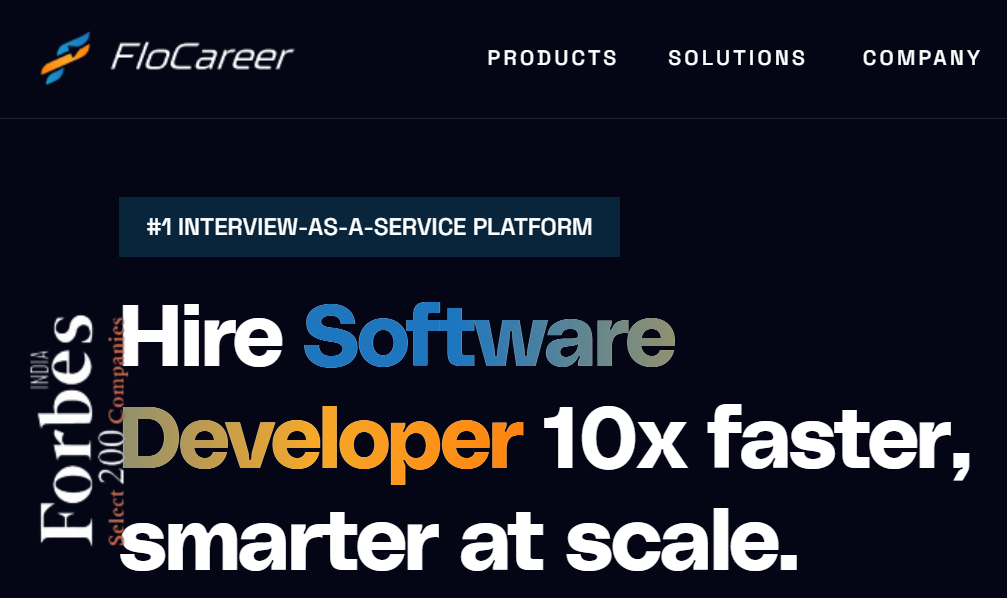
FloCareer is a collaborative hiring platform focused on enhancing the alignment between interviewers and candidates. It leverages smart matching technology to pair candidates with the most suitable interviewers based on skills and availability. FloCareer’s robust scheduling capabilities, coupled with its analytics tools, make it an excellent choice for companies seeking collaborative and data-driven recruitment solutions.
Key Features:
- AI-driven interviewer-candidate matching.
- Real-time updates for scheduling changes.
- Advanced metrics to optimize interviewer efficiency.
- Seamless integration with ATS and other recruitment tools.
- Automated follow-ups to reduce no-shows.
Pros:
1. Encourages team collaboration through smart matching.
2. Provides actionable insights with detailed analytics.
3. Supports multiple interview formats, including panel interviews.
4. Customizable workflows to suit unique hiring processes.
Cons:
1. Higher pricing tiers may deter small companies.
2. Complex setup process for organizations with unique workflows.
3. Limited self-scheduling options for candidates.
4. Not ideal for companies with basic scheduling needs.
6. HireVue
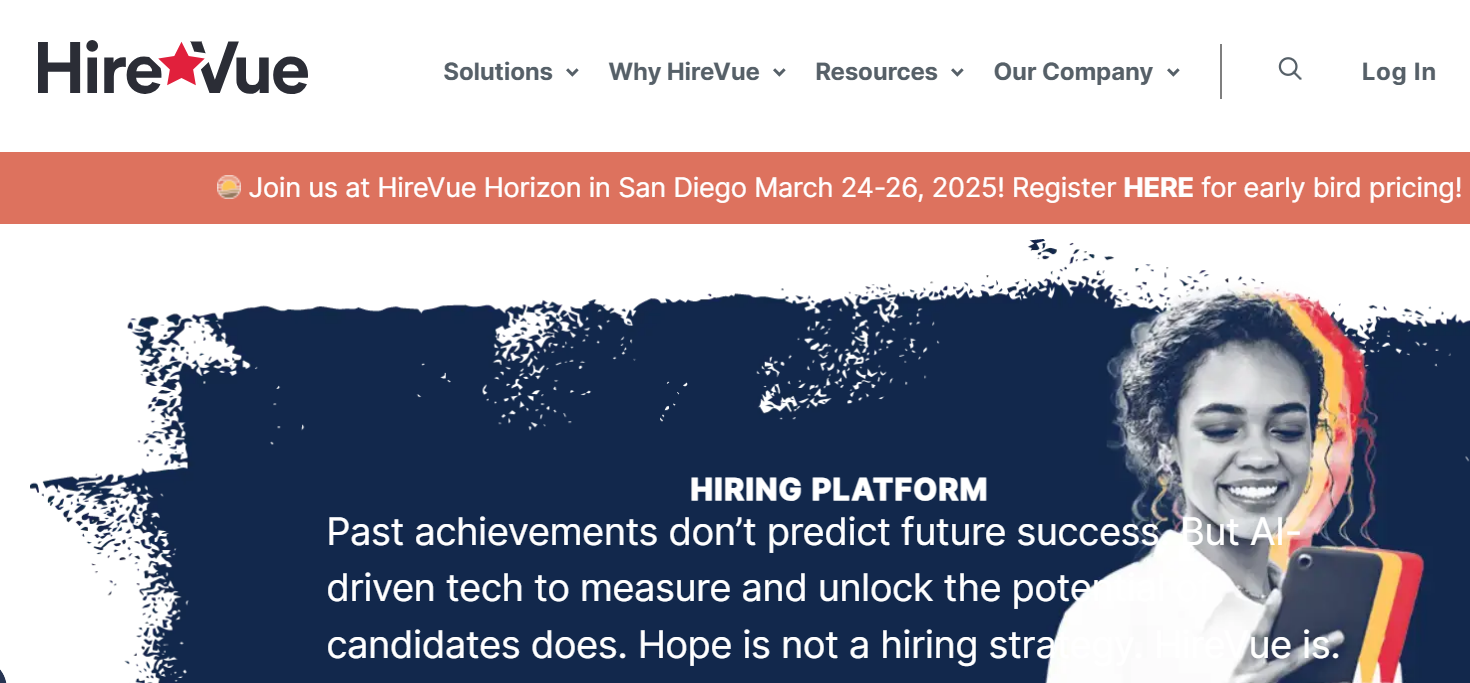
HireVue is an all-in-one recruitment platform that combines interview scheduling with video interviewing and AI-driven assessments. It’s an excellent choice for companies conducting high-volume hiring or requiring remote interview solutions. By integrating scheduling automation and advanced candidate evaluation tools, HireVue ensures a smooth experience for both recruiters and every interview candidate, while also saving time and resources.
Key Features:
- Video interview integration for seamless virtual hiring.
- Automated reminders and scheduling notifications.
- AI-based candidate assessments for deeper insights.
- Real-time analytics to measure recruitment effectiveness.
- Multi-device compatibility for ease of use on desktops, tablets, and phones.
Pros:
1. Combines scheduling with advanced video interviewing tools.
2. Ideal for high-volume hiring and remote recruitment processes.
3. AI-driven insights improve candidate evaluation.
4. Flexible and scalable for companies of all sizes.
Cons:
1. Complex interfaces may require extensive training.
2. Custom pricing could be a challenge for smaller budgets.
3. Lacks a self-scheduling option for candidates.
4. Some users report occasional lag in video integration.
7. Zoho Recruit
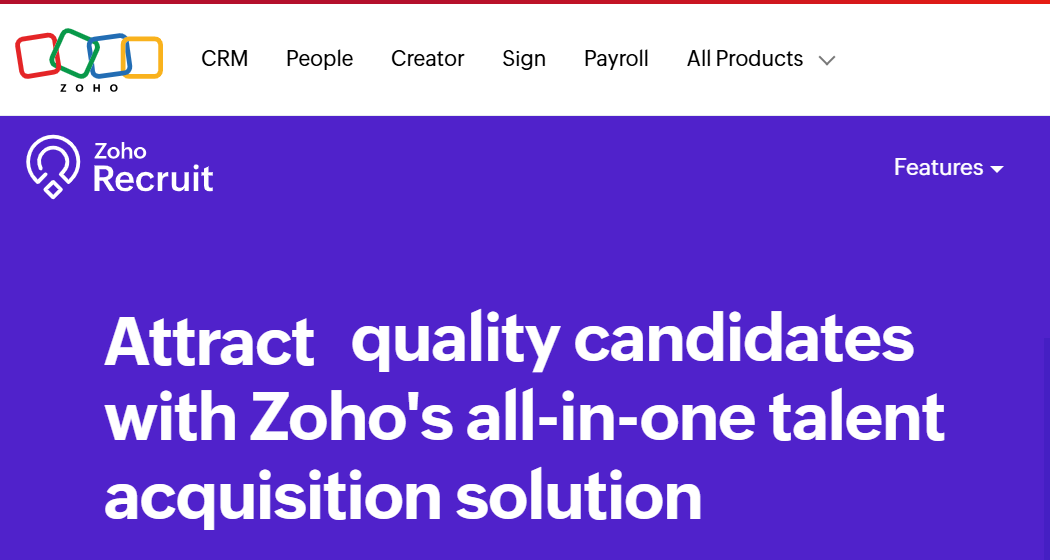
Zoho Recruit is a budget-friendly yet robust recruitment platform with integrated interview scheduling capabilities. It is particularly suited for small businesses looking for a cost-effective way to streamline their hiring processes. With its built-in ATS, Zoho Recruit allows recruiters to manage applications, schedule interviews, and track candidate progress all from a single platform.
Key Features:
- Built-in ATS with interview scheduling tools.
- Automated candidate notifications and reminders.
- Integration with popular calendars and video conferencing platforms.
- Customizable scheduling workflows to fit unique needs.
- Recruitment analytics for tracking key metrics.
Pros:
1. Affordable for small businesses and startups.
2. User-friendly interface with minimal learning curve.
3. Strong integration with other Zoho applications.
4. Supports customizable workflows for tailored hiring processes.
Cons:
1. Limited advanced features compared to enterprise-level tools.
2. Lacks bulk scheduling for high-volume recruitment.
3. Reporting features are less detailed than competitors.
4. Some users report occasional delays in notifications.
8. MyInterview
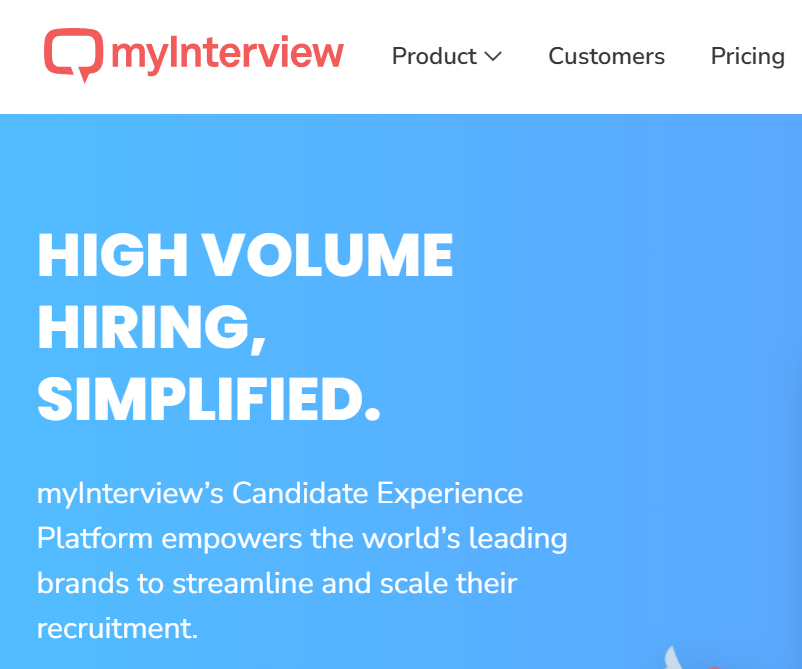
MyInterview Scheduler is a simple yet effective tool tailored for small and mid-sized businesses. It focuses on enhancing scheduling efficiency with features like video interview integration and customizable notifications. This tool is best suited for organizations looking for cost-effective and straightforward scheduling solutions.
Key Features:
- Easy video interview scheduling and integration.
- Automated notifications to reduce no-shows.
- Centralized platform for managing interview slots.
- Candidate feedback collection for process improvement.
- Integration with existing tools like Google Calendar and Outlook.
Pros:
1. Affordable pricing for budget-conscious businesses.
2. Simple setup process requiring minimal technical expertise.
3. Focused on video interview scheduling for remote hiring.
4. Improves candidate experience with clear communication.
Cons:
1. Limited scalability for larger organizations.
2. Fewer advanced analytics compared to premium tools.
3. Basic design may lack appeal for tech-savvy teams.
4. Lacks time zone management for global recruitment.
9. Calendly

Calendly is a versatile interview scheduling software designed for businesses of all sizes. Known for its user-friendly interface, it simplifies scheduling for recruiters and provides a seamless experience for every interview candidate. Calendly’s robust integrations, automated reminders, and self-scheduling options make it a popular choice for improving recruitment efficiency. With a focus on flexibility and accessibility, it is ideal for small to mid-sized businesses and teams that prioritize simplicity and cost-effectiveness.
Key Features:
- Syncs with Google Calendar, Outlook, and Office 365 for real-time scheduling updates.
- Enables candidates to select available slots based on recruiter-defined preferences.
- Sends email and SMS reminders to minimize no-shows and improve punctuality.
- Automatically adjusts scheduling to the candidate’s local time for global recruitment.
- Allows recruiters to set specific availability and buffer times to manage their workflow.
Pros:
- Intuitive and easy to use for both recruiters and candidates.
- Free basic plan with premium tiers starting at $8/month, ideal for small businesses.
- Connects with tools like Zoom, Slack, and Salesforce for enhanced workflow efficiency.
- Works seamlessly on mobile devices, allowing scheduling on the go.
Cons:
- Lacks in-depth analytics and bulk scheduling capabilities required by large enterprises.
- Limited branding and interface customization options.
- Requires a stable internet connection, which may be a challenge in areas with poor connectivity.
- May need additional plugins or manual workarounds for CRM compatibility.
10. GoHire
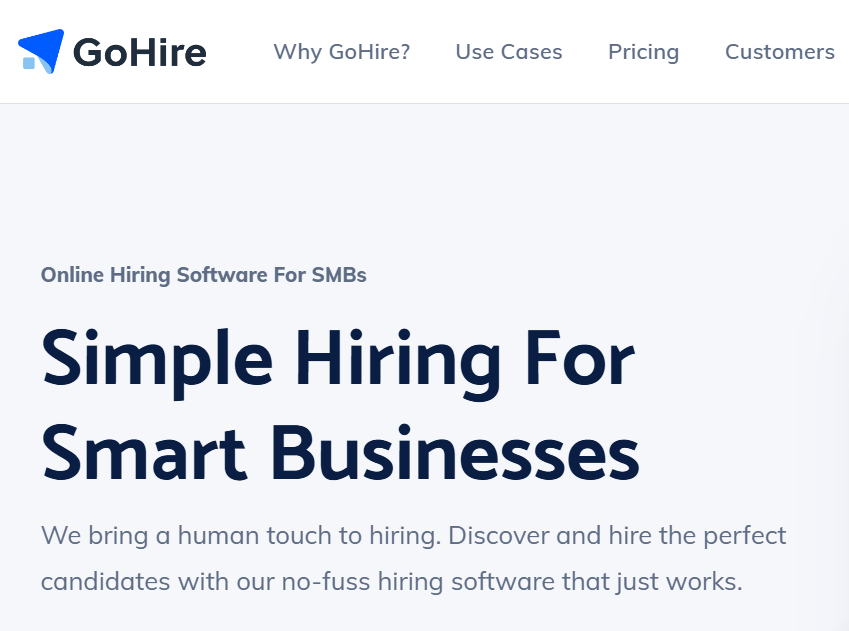
GoHire is a user-friendly scheduling tool tailored for startups and small businesses. It simplifies the recruitment process with intuitive features like self-scheduling and real-time updates. GoHire integrates seamlessly with ATS platforms, making it a go-to solution for companies looking to streamline hiring without investing in complex systems.
Key Features:
- Candidate self-scheduling with real-time calendar updates.
- Integration with ATS and other HR tools.
- Simple scheduling workflows tailored for small teams.
- Automated email and SMS notifications for candidates.
- Mobile compatibility for managing interviews on the go.
Pros:
1. Affordable and ideal for startups and small businesses.
2. Self-scheduling enhances the candidate experience.
3. Easy to set up and use, even for non-technical teams.
4. Real-time updates ensure seamless communication.
Cons:
1. Limited scalability for growing businesses.
2. Basic reporting and analytics features.
3. Lacks advanced customization options.
4. Minimal support for international hiring processes.
Setting Up and Implementing Interview Scheduling Software
Properly implementing interview scheduling software is key to maximizing its benefits for both recruiters and every interview candidate. A well-planned setup ensures the software integrates smoothly with your existing workflows and provides a seamless scheduling experience. From installation to optimization, following a structured process can make a significant difference in your recruitment efficiency.
Installation and Configuration
Set up the software to match your organizational needs, including user roles, permissions, and default settings. Run tests to ensure all features, such as calendar integration and automated notifications, are working as expected.
Training for HR and Recruitment Teams:
Provide in-depth training sessions to familiarize the team with key features, like self-scheduling and reminders. Establish a support system for troubleshooting and ongoing learning.
Integration with Recruitment Workflow:
Sync the software with your ATS, calendars, and communication tools to create a unified process. Automate repetitive tasks, such as sending reminders and rescheduling interviews.
Monitoring and Optimization
Regularly review software performance metrics, such as no-show rates and scheduling efficiency. Gather feedback from recruiters and interview candidates to refine processes and enhance user experience.
By following these steps, you can ensure the software becomes a valuable tool, saving time, reducing errors, and improving the candidate experience.
Future Trends in Interview Scheduling Software
The evolution of interview scheduling software is driven by advancements in technology and an increased focus on creating a seamless experience for both recruiters and the interview candidate. Emerging trends promise to make scheduling smarter, faster, and more personalized, catering to the needs of modern hiring teams and job seekers alike. These innovations are set to redefine how interviews are scheduled and managed.
Integration of AI and Machine Learning
AI will predict optimal interview times based on recruiter and candidate availability. Machine learning algorithms can automate routine tasks, such as sending reminders and resolving scheduling conflicts.
Enhanced Mobile Capabilities
Mobile-first designs will allow recruiters and interview candidates to schedule and manage interviews on the go. Push notifications and mobile integrations will ensure real-time updates and easy access.
Focus on Candidate Experience:
Tools will become more intuitive, offering features like instant scheduling and personalized communication. Emphasis will be placed on reducing friction in the scheduling process, ensuring a stress-free experience for candidates.
Data Analytics for Recruitment Insights
Advanced reporting tools will provide insights into time-to-hire, no-show rates, and overall scheduling efficiency. These analytics will help organizations refine their hiring strategies and make data-driven improvements.
As these trends continue to shape the future, interview scheduling software will play an even more pivotal role in creating efficient and candidate-friendly hiring processes.
Conclusion
Efficient interview scheduling software is no longer a luxury but a necessity in today’s competitive hiring landscape. By automating time-consuming tasks and improving the experience for every interview candidate, these tools save valuable time, reduce errors, and streamline communication for both recruiters and candidates.
Choosing the right solution requires evaluating your organization’s specific needs, integration requirements, and budget. Entry-level platforms like Calendly and GoHire are excellent for startups and small businesses, while advanced options such as HireVue and GoodTime excel in managing complex recruitment workflows for larger teams.
With the integration of cutting-edge technologies like AI, enhanced mobile functionality, and data analytics, the future of interview scheduling software promises even greater efficiency and effectiveness. For organizations aiming to attract and retain top-tier talent, adopting the right tool is a strategic investment in recruitment excellence.
Ready to find the perfect scheduling tool for your organization? Contact hrtech today to explore best solutions that meet your hiring needs.
